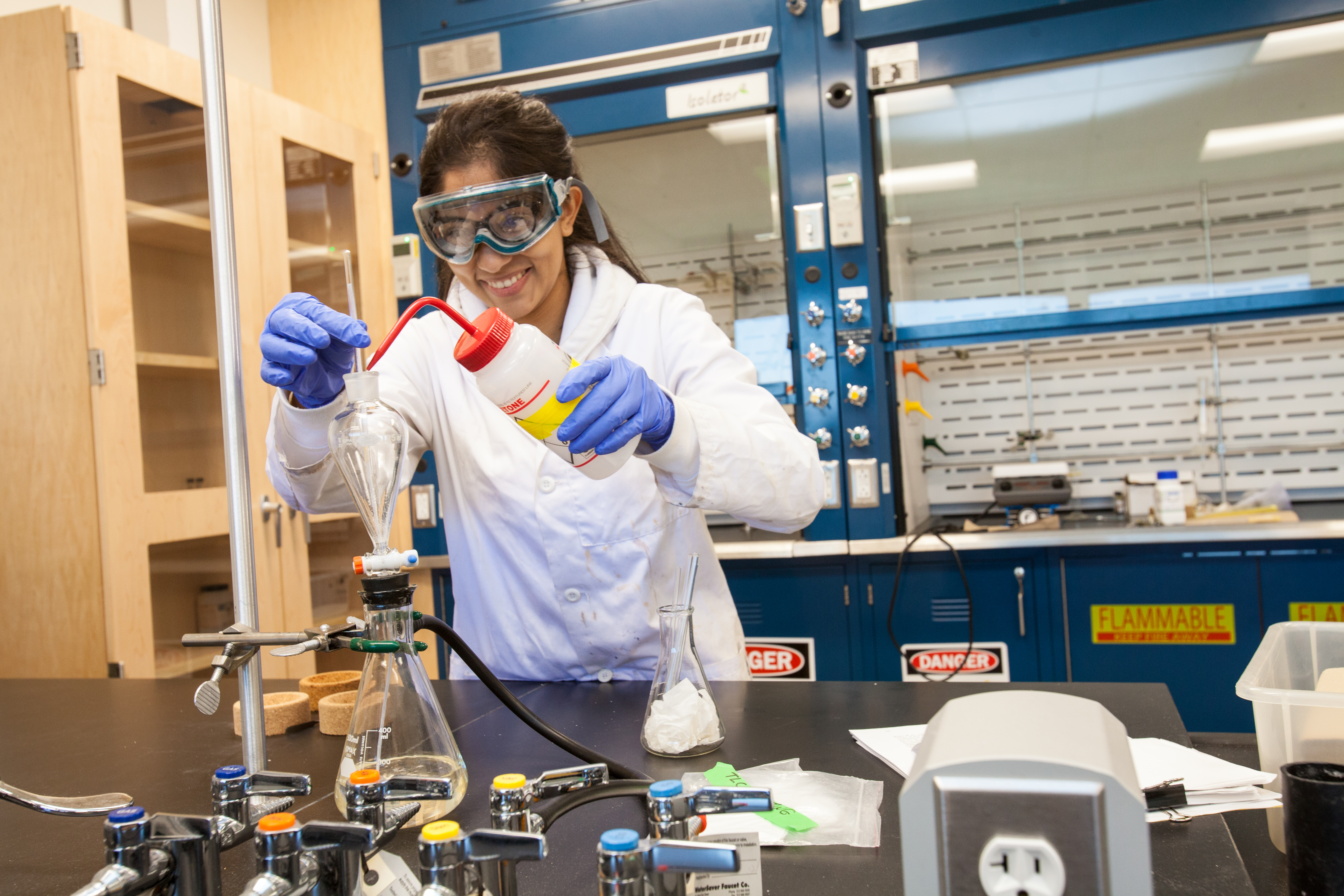 Sacramento State - and CSU - continues to make greater inroads in STEM education, gaining new support from an $8 million grant. (Sacramento State/Andrea Price)
Sacramento State - and CSU - continues to make greater inroads in STEM education, gaining new support from an $8 million grant. (Sacramento State/Andrea Price)Sacramento State STEM has landed another huge score, winning a $4 million grant from the National Science Foundation (NSF). With matching funds from the CSU Chancellor’s Office, the grant total is $8 million over five years.
RELATED CONTENT: University wins $1.5 million NSF grant for STEM programs
The project is a continuation of the NSF-supported CSU-Louis Stokes Alliance for Minority Participation (CSU-LSAMP).
CSU-LSAMP is an alliance of the 23 CSUs that supports a coordinated, comprehensive, system-wide approach to increasing diversity in science, technology, engineering and mathematics (STEM) disciplines, especially among traditionally underrepresented minorities.
CSU-LSAMP has since its inception in 1993 served more than 26,000 students, over which time enrollment of underrepresented minority students in STEM disciplines at CSUs more than tripled and annual STEM bachelor’s degree production for those minority students increased more than fivefold.
“This is a program that actually has closed achievement gaps,” says Lisa Hammersley, an associate dean in the College of Natural Sciences and Mathematics who is the lead project director and co-principal investigator (Co-PI) on the award.
University President Robert S. Nelsen serves as the principal investigator. Semarhy Quinonez-Soto (Biological Sciences) and Shannon Williams (Institute for Social Research) also serve as Co-PIs on the award.
“I am thrilled by the news that our CSU-LSAMP grant team has been awarded another $4 million from the National Science Foundation," Nelsen said. "This grant is making a real difference in our ability to close the achievement gaps for our STEM students.
"I am extremely proud of everyone who worked to secure this funding. Their efforts will positively impact our students for generations to come.”
For the five-year project period, CSU-LSAMP will engage approximately 3,000 CSU STEM students annually in activities that include academic support, exposure to research, and professional development opportunities. It will continue to have a significant impact on increasing overall persistence and enrollment in STEM, as well as the number of STEM bachelor’s degrees awarded, for traditionally underrepresented minority students.
In its new role as a STEM Pathways and Research Alliance, however, CSU-LSAMP also will focus on contributing to the production of scholarly research in broadening participation in STEM. This will be achieved through the creation of a research team made up of social science researchers, program evaluators and the Sacramento State CSU-LSAMP leadership team.
Its formation will be the first step in creating a CSU center for broadening participation research in STEM, which will serve as a resource for education and social science researchers across the CSU. Ideally, Hammersley says, Sac State eventually will become that research hub.
“It is daunting,” she says, “but I’m pretty sure we can do that,” she says. – Ahmed V. Ortiz
MORE RELATED CONTENT: Across the university, innovation flows like a river, soars like a song
